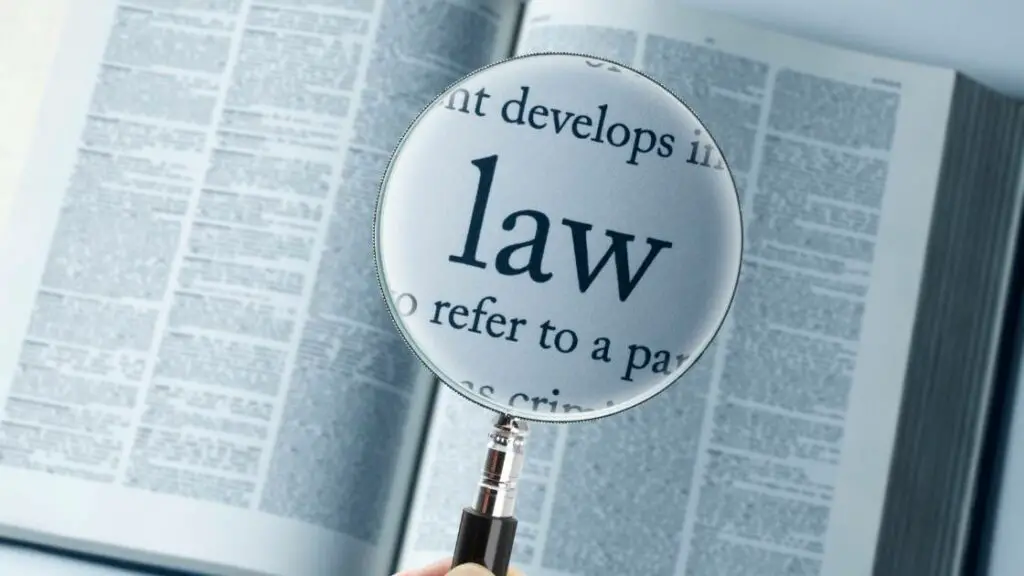The prospect of moving into a new apartment can fill you with excitement – after all, it is a new beginning of sorts for you and it can give you a sense of hope and anticipation.
So imagine the dismay you may feel if you step into your new place and it is not what you were promised.
Maybe it is filthy, maybe it has bugs crawling around, maybe some of the appliances were removed, or perhaps some of the renovations that were supposed to happen didn’t.
In any event, the sense of disappointment is real and you may be wondering what you can do about this situation.
In this article, I am going to answer that question by providing a step-by-step guide on what you should do to get the best possible outcome when your apartment is not as promised.
Let’s get into it!
The information contained in this post is for informational purposes only. It is not legal advice. You should seek the advice of a qualified legal professional before making any decisions relating to the topics covered by this article.
We may earn commissions from products and services that are purchased or recommended through our website as part of our affiliate partnerships. As an Amazon affiliate, we may earn from qualifying purchases.
Step 1: Review What Was Promised

If your apartment is not as promised, the first thing you want to do is fully understand what exactly was promised.
If you were advertised a certain type of rental, you want to gather proof of that. So see if you can find the advertisement for the unit that you relied on when you were apartment hunting.
In some cases, that might not be possible but if you can find it, save it. You also want to gather all written communications you had with the landlord about the apartment. That includes emails, text messages, and the like.
The more support you can gather around what was promised but not delivered, the better.
If all you have are verbal promises, that’s obviously not as compelling or convincing, but you can still use them. Try to remember the exact wording and the time and place of the promise and take note of it.
Once you have gathered the details and organized them, prepare to have a conversation with your landlord about it. You don’t have to be confrontational or hostile from the outset.
It is quite possible that the landlord is not aware of the condition of the property (especially if he owns multiple units) and may be willing to correct the problem without debate. If they are not, it is time to evaluate your rights under contract and applicable law.
Step 2: Read Your Lease
In order to understand your contractual rights, you must review your lease.
It is the definitive contractual arrangement between you and your landlord and will generally govern how contractual disputes will be resolved.
If your goal is to have the landlord remedy the issue, then see if any provisions require the landlord to do this.
If there is a discrepancy between your property and what the lease states, you will definitely want to call that out. In many cases, leases will have specific provisions around what is included, so review it with a careful eye.
If there is a needed repair, in most cases, the landlord will be responsible for performing it (although this is not always the case, so you should confirm that in your lease).
If it’s not something that is fixable and you want to get out of your lease, then you should review it to see if there are any provisions that let you get out early, such as an early termination provision.
Of course, if you are on a month to month lease, you can get out pretty easily (usually on 30 days’ notice).
If the lease is silent or unclear on your remedies (or it does not give the remedy you want), you will want to look at applicable laws in your jurisdiction to see if you can get some relief under those regulations.
Step 3: Know Your Rights Under the Law

Ok, it’s time to move on to the legal stuff.
In cases where a landlord has promised an apartment with certain features or in a certain condition, there are two important principles to consider – the implied warranty of habitability and fraud in the inducement.
We’ll cover both.
The Implied Warranty of Habitability
The implied warranty of habitability is essentially a legal concept that basically requires a landlord to deliver to the tenant a dwelling that is safe and livable.
In many cases, that standard is violated if the dwelling does not meet local housing codes. Source
Common examples of habitability requirements include:
- Drinkable water
- Hot water
- Heat during cold weather
- Working electricity
- Properly operating plumbing including bathrooms and toilets
- A sanitary premises, including the removal of insect or rodent infestation
If your apartment is not livable because it fails to meet habitability conditions, you may have a strong case to have your landlord fix it.
Now the implied warranty of habitability has been adopted by many states (but not all of them), and even among the states that have adopted it, they may have different interpretations of what habitability includes.
So if you want a definitive answer on whether your dwelling is habitable under law, it is important to familiarize yourself with applicable laws in your region (or have a lawyer help you navigate through it all).
If you prefer to have a lawyer assist you, I would try JustAnswer. They boast access to thousands of highly-rated, verified real estate lawyers whom you can connect with via their unlimited chat service.
By clicking the banner below, you can get a one week trial membership for only $5, which you can cancel at any time.

Fraud in the Inducement
If habitability is not an issue, but you were promised by your landlord that the apartment would be in a certain condition or have features that it does not, you may still have a claim based on a cause of action called fraud in the inducement.
Fraud in the inducement sounds complicated, but the basic concept is simple.
It occurs when someone tricks another person into signing an agreement to that person’s disadvantage by using false statements. If this happens, the victimized party can seek damages or terminate the contract. Source.
Now, different states have different standards and remedies when it comes to this cause of action, so you will definitely need to understand your state’s laws around this issue.
If you are seriously thinking of pursuing a lawsuit based on this cause of action, you should consult with a qualified lawyer in the area.
Step 4: Negotiate with Your Landlord
Ok, if you have done the research and feel property armed with the contractual and legal underpinnings of your claim, you can negotiate properly with your landlord to get the needed relief.
In many cases, a mom and pop landlord will not be prepared to respond to a tenant who has really done their homework. They don’t want to bear the expense of going to court and the mere threat of something like that (even if it is never stated) may bring them to the negotiating table.
You should adopt a polite, yet firm, stance when negotiating. You don’t want to induce the landlord to take a hard line because you were rude or offended them.
Be professional and try to work out a mutually workable solution. If negotiations break down, it may be time to bring in professional help. Let’s turn to that.
Step 5: Get Legal Help

Ok, so if things have reached this point, you may want to consider bringing in a lawyer to represent you in a claim against the landlord. At a minimum, you may want to get an initial consultation to get a better sense of how strong your suit would be and your likelihood of prevailing.
As mentioned earlier, Just Answer may be a great resource to get quick and very affordable legal advice before making any big commitments.
Conclusion
So there you have it – a detailed look at what you can do if your apartment is not as promised. Hope this has been helpful and happy renting!


